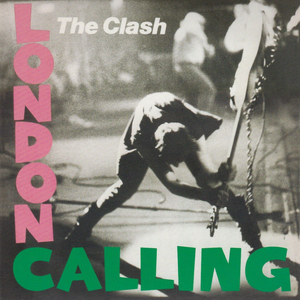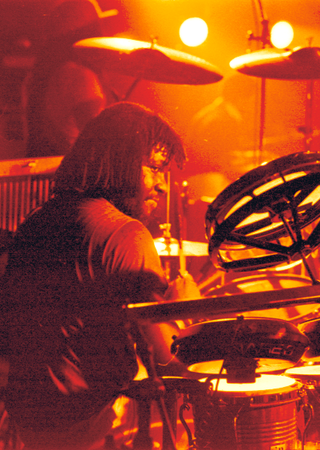Related Research Articles

Reggae is a music genre that originated in Jamaica in the late 1960s. The term also denotes the modern popular music of Jamaica and its diaspora. A 1968 single by Toots and the Maytals, "Do the Reggay", was the first popular song to use the word reggae, effectively naming the genre and introducing it to a global audience. Reggae is rooted out from traditional Jamaican Kumina, Pukkumina, Revival Zion, Nyabinghi, and burru drumming. Jamaican reggae music evolved out of the earlier genres mento, ska and rocksteady. Reggae usually relates news, social gossip, and political commentary. It is instantly recognizable from the counterpoint between the bass and drum downbeat and the offbeat rhythm section. The immediate origins of reggae were in ska and rocksteady; from the latter, reggae took over the use of the bass as a percussion instrument.

Ska is a music genre that originated in Jamaica in the late 1950s and was the precursor to rocksteady and reggae. It combined elements of Caribbean mento and calypso with American jazz and rhythm and blues. Ska is characterized by a walking bass line accented with rhythms on the off beat. It was developed in Jamaica in the 1960s when Stranger Cole, Prince Buster, Clement "Coxsone" Dodd, and Duke Reid formed sound systems to play American rhythm and blues and then began recording their own songs. In the early 1960s, ska was the dominant music genre of Jamaica and was popular with British mods and with many skinheads.

The Clash were an English rock band that formed in London in 1976 and were key players in the original wave of British punk rock. Billed as "The Only Band That Matters", they used elements of reggae, dub, funk, ska, and rockabilly, and they contributed to the post-punk and new wave movements that followed punk. For most of their recording career, the Clash consisted of lead vocalist and rhythm guitarist Joe Strummer, lead guitarist and vocalist Mick Jones, bassist Paul Simonon, and drummer Nicky "Topper" Headon.

Moses Anthony Davis, professionally known as Beenie Man, is a Jamaican dancehall deejay.

London Calling is the third studio album by the English rock band the Clash. It was originally released as a double album in the United Kingdom on 14 December 1979 by CBS Records, and in the United States in January 1980 by Epic Records.
Dancehall is a genre of Jamaican popular music that originated in the late 1970s. Initially, dancehall was a more sparse version of reggae than the roots style, which had dominated much of the 1970s. In the mid-1980s, digital instrumentation became more prevalent, changing the sound considerably, with digital dancehall becoming increasingly characterized by faster rhythms. Key elements of dancehall music include its extensive use of Jamaican Patois rather than Jamaican standard English and a focus on the track instrumentals.

Culture are a Jamaican roots reggae group founded in 1976. Originally they were known as the African Disciples. The one constant member until his death in 2006 was Joseph Hill.

Give 'Em Enough Rope is the second studio album by the English punk rock band the Clash, released on 10 November 1978 through CBS Records. It was their first album released in the United States, preceding the US version of the self-titled studio album. The album was well received by critics and fans, peaking at number two in the United Kingdom Albums Chart, and number 128 in the Billboard 200. The album is tied with Combat Rock (1982) for being the highest-charting album for the Clash in their native United Kingdom.
In Jamaican popular culture, a sound system is a group of disc jockeys, engineers and MCs playing ska, rocksteady or reggae music. The sound system is an important part of Jamaican culture and history.

Sly and Robbie were a prolific Jamaican rhythm section and production duo, associated primarily with the reggae and dub genres. Drummer Sly Dunbar and bassist Robbie Shakespeare teamed up in the mid-1970s after establishing themselves separately in Jamaica as professional musicians. Shakespeare died in December 2021 following kidney surgery.

Leighton Keith "Pluto" Shervington was a Jamaican reggae musician, singer, audio engineer, and record producer.

"(White Man) In Hammersmith Palais" is a song by the English punk rock band the Clash. It was originally released as a 7-inch single, with the b-side "The Prisoner", on 16 June 1978 through CBS Records.
Dubstep is a genre of electronic dance music that originated in South London in the early 2000s. The style emerged as a UK garage offshoot that blended 2-step rhythms and sparse dub production, as well as incorporating elements of broken beat, grime, and drum and bass. In the United Kingdom, the origins of the genre can be traced back to the growth of the Jamaican sound system party scene in the early 1980s.

Sneaky Sound System is an Australian dance music group formed in late 2001 by Angus McDonald on guitar, MC Double D on vocoder and vocals, Damien Hesse (DJ) and Nick Broadhurst on saxophone. They were joined in 2004 by Connie Mitchell (ex-Primary) on vocals; Downey left the band in September 2009, Hesse in 2005 and Broadhurst in 2006. On 12 August 2006, they released their self-titled debut studio album, which peaked at No. 5 on the ARIA Albums Chart in mid-November 2007 and was certified 3× platinum by December 2011, denoting shipments of 210,000 copies. The group's breakthrough single, "I Love It", which was issued on 8 July 2006, peaked at No. 24 on the ARIA Singles Chart and spent 73 weeks in the Top 100 – this broke the record as the longest charting single previously held by The Living End's 1997 hit, "Second Solution / Prisoner of Society", at 69 weeks. Their second studio effort, 2, which appeared on 16 August 2008, became their first number-one album. On 7 October 2011, From Here to Anywhere was released and reached at No. 11. At ARIA Music Awards ceremonies they have been nominated fourteen times winning twice in 2007 for Best Dance Release and Breakthrough Artist – Album for their eponymous album.
Ted Hutt is a British record producer, musician, and songwriter, residing in Los Angeles, California, United States. He was the original guitar player and one of the founding members for The Promise, The Great Unwashed, Gods Hotel, Reacharound, and Flogging Molly.
Tony Matterhorn is a dancehall reggae deejay and sound system selector from Kingston, Jamaica.

Bass Odyssey is a Jamaican reggae and dancehall sound system founded in 1989 by Keith Walford.
Sentinel is a reggae and dancehall sound system from Stuttgart, Germany, best known for winning the 2005 World Clash in Brooklyn, New York.
World Clash is an annual reggae sound system clash.
Nateshia Lindsay, better known by her stage name Ms. Thing, is a Jamaican dancehall vocalist and deejay. She is best known for providing vocals on the international hit song "Dude" by Beenie Man, which charted on the Billboard Hot 100 and the UK Singles Chart.
References
- ↑ "1 Xtra to host third annual soundsytem clash". Music Week . 15 March 2004. Retrieved 22 January 2012.
- 1 2 "Who will be victorious at final Death Before Dishonour on Easter Monday?". Jamaica Observer . 3 April 2010. Retrieved 22 January 2012.
- ↑ "Quickies: Diamond weekend for Macka". Jamaica Gleaner . 6 January 2012. Retrieved 22 January 2012.
- ↑ Gardner, Laura (2003). "Two Cultures, One Sound: Mighty Crown's International Reign". The Beat. p. 44. Retrieved 22 January 2012.
- ↑ "Reggae veteran still winning respect". Music Week . 21 April 2003. Retrieved 22 January 2012.
- ↑ "Bass Odyssey wins UK Cup Clash 2014", madpeps.com